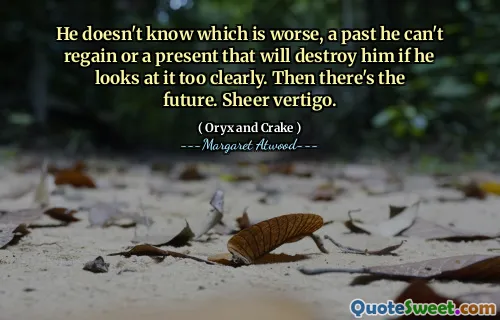Part of what impelled him was stubbornness; resentment, even. The system had filed him among the rejects, and what he was studying was considered-at the decision-making levels, the levels of real power-an archaic waste of time. Well then, he would pursue the superfluous as an end in itself. He would be its champion, its defender and preserver. Who was it who'd said that all art was completely useless? Jimmy couldn't recall, but hooray for him, whoever he was. The more obsolete a book was, the more eagerly Jimmy would add it to his inner collection.
In "Oryx and Crake," the protagonist is driven by a sense of stubbornness and resentment towards a system that has deemed him a reject. His interest in studying seemingly outdated and pointless subjects becomes an act of defiance against those in power who overlook the importance of such knowledge. Rather than abandon his passions, he commits himself to safeguarding and promoting the value of what others consider superfluous.
This commitment reflects a deeper belief in the significance of art and knowledge that is often dismissed as useless. Jimmy embraces what society disregards, taking pride in his collection of obsolete works. His journey highlights the tension between societal values and individual purpose, affirming that even the most archaic pursuits can be worthy of dedication and preservation.






